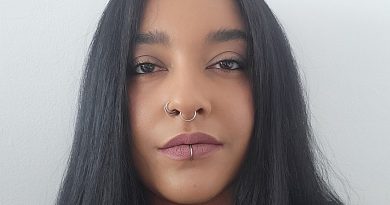How Facing My Buried Emotions Helped Me Heal From Cancer
When I was diagnosed with recurrent cervical cancer in February 2016, I was ready to jump into action to prove the doctors wrong when they said I was incurable. As a lifelong list maker and overachiever, I was prepared to do whatever I needed to do in order to live, whether that was changing my diet, exercising more or trying alternative treatments like acupuncture. What I didn’t expect was that I would also have to face all my emotional demons in order to heal.
I believed in the body-mind-spirit connection, but I didn’t understand that shoving all my negative emotions into the back of an emotional closet could be detrimental to my physical health.
I grew up in a very stoic German-American household in Ohio. We didn’t do emotions. Therapy was out of the question, even when my mother died when I was 12. I pretended I was fine so my father wouldn’t worry and so I wouldn’t stick out as the “girl with the dead mom.” When I was raped a few months later, I buried the shame and self-blame in the same emotional closet.
The closet of buried emotions continued to fill up with every true and perceived grievance a highly sensitive teen, young woman and then grown woman can incur: friends who ghosted me, boyfriends who left me after pledging their undying love, petty coworkers taking backstabbing jabs and passive-aggressive snips by committee moms. I took it all to heart but didn’t know how to emotionally deal with it.
Then suddenly, I found myself in a battle for my life. I was given a diagnosis of recurrent cervical cancer and 15 months to live. I was desperate to heal myself and see my then-8-year-old son grow up. I started reading, researching and seeking out survivor stories. Over and over, survivors who had beaten their prognosis described doing deep emotional work and forgiveness. My type A, get-it-done mind stretched to grasp what seemed like a woo-woo concept. How was forgiving my rapist and jerk boss going to heal my cancer? It seemed too big a leap to grasp.
Then, my rational mind found the book that provided research that the mind-body-spirit connection was not only real, but was what thousands of medically verified cancer remission survivors credited with their unexpected survival: Radical Remission by Dr. Kelly Turner.
I read the chapter entitled “Releasing Suppressed Emotions” and actually thought, “Oh, this isn’t me — I don’t hold anything in. I just tell it like it is.” Because I no longer waited to tell my husband off when he was a jerk and I cried when I felt like it, I thought I had mastered my emotions.
I closed the book and I stood up from my bed ready to finish my nighttime routine, still feeling confident I was in a good emotional state. That’s when I heard a little voice in my head say, “Yeah, but what about the rape?” I fell back onto the bed. My intuition had called me out on my deepest, darkest secret.
I finally got it. If I wanted to heal my body, I needed to heal my heart of all the burdens it was holding. I needed to connect my mind to all the parts of my heart that I had tossed aside.
After that night, I found a psychotherapist. Together in our safe space, we opened the closet door and started to address all the big and little things I didn’t even know were in there. I left each session lighter and in less physical pain.
None of us want to face our negative emotions, but it is truly imperative to our health. I understand now that you can’t keto your life right. Yoga and acupuncture are amazing, but you can’t just hope that’ll heal you. The mind and heart connection is a huge piece in this puzzle.
Today, against all medical expectations, I’m in remission — in part, I believe, because I was willing to dig deep into my buried emotions as well as receive necessary medical treatment. I changed every part of my life to achieve this remission. The doctors call it a “spontaneous remission,” but I believe there was nothing spontaneous about it. This deep emotional work was painful and hard but also uplifting and freeing. In my view, having a lighter heart enabled my body to accept all the physical and spiritual changes I was also making.
Now, two years into remission, I make an effort not to stockpile repressed emotions and still see a therapist regularly to help with that. I also continued practices like yoga, meditation and acupuncture that I once considered woo-woo but now consider essential to my emotional health. Though we have no power to change the past, we can choose how we deal with these emotions and traumas, and I believe doing so in a healthy way aided my recovery.
Source: Read Full Article


